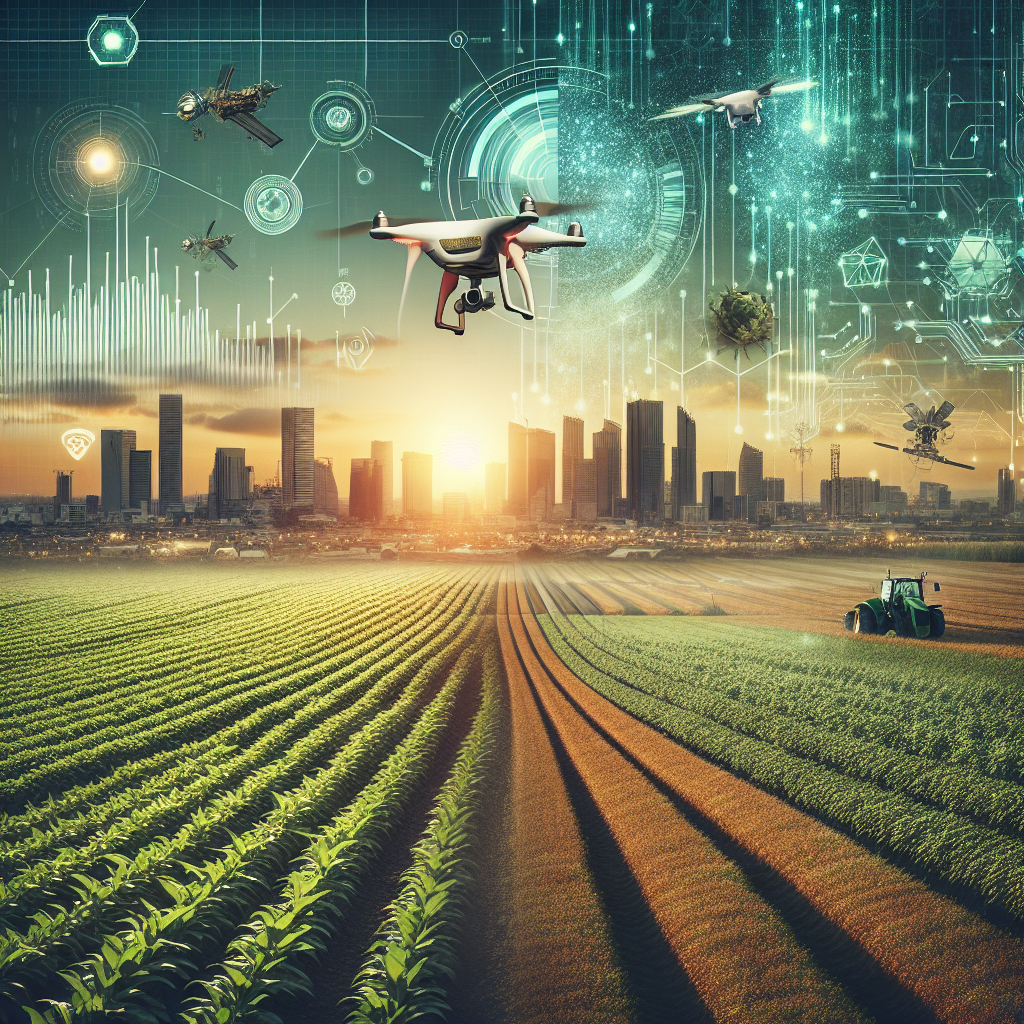Artificial Intelligence (AI) has the potential to revolutionize sustainable food production in numerous ways. From optimizing crop yields to reducing food waste, AI technology can play a crucial role in addressing the challenges faced by the agriculture industry and promoting sustainability.
One of the key ways in which AI can revolutionize sustainable food production is through precision agriculture. Precision agriculture involves using technology to monitor and manage crop production with precision and efficiency. AI algorithms can analyze data from various sources such as satellite imagery, soil sensors, and weather forecasts to provide farmers with valuable insights into crop health, soil conditions, and optimal planting times. This information can help farmers make informed decisions about irrigation, fertilization, and pest control, leading to higher crop yields and reduced environmental impact.
AI-powered agricultural robots are another innovative technology that can revolutionize sustainable food production. These robots can perform a variety of tasks such as planting seeds, weeding, and harvesting crops with precision and efficiency. By automating these labor-intensive processes, farmers can reduce the use of chemical inputs, minimize soil compaction, and increase productivity. AI-powered robots can also work around the clock, allowing farmers to maximize their output while minimizing their environmental footprint.
In addition to optimizing crop production, AI can also help reduce food waste along the supply chain. By analyzing data on factors such as temperature, humidity, and transportation routes, AI algorithms can predict and prevent spoilage and contamination of perishable foods. This can help reduce food waste, increase food security, and lower greenhouse gas emissions associated with food production and transportation.
Furthermore, AI can also play a crucial role in developing sustainable alternatives to traditional animal agriculture. By using AI algorithms to analyze data on plant-based proteins, cultured meats, and insect-based foods, researchers can develop innovative solutions to meet the growing demand for protein while reducing the environmental impact of animal agriculture. By promoting the adoption of these sustainable food alternatives, AI can help create a more sustainable and resilient food system for future generations.
Despite its potential benefits, AI technology also raises important ethical and social considerations. For example, there are concerns about the impact of automation on jobs in the agriculture industry, as AI-powered robots may replace human workers in certain tasks. Additionally, there are concerns about data privacy and security, as AI algorithms rely on vast amounts of data to make decisions, raising questions about who owns and controls this data.
To address these concerns, policymakers, researchers, and industry stakeholders must work together to develop ethical guidelines and regulations for the use of AI in sustainable food production. By promoting transparency, accountability, and inclusivity in the development and deployment of AI technology, we can ensure that AI remains a force for good in promoting sustainability and resilience in the agriculture industry.
In conclusion, AI has the potential to revolutionize sustainable food production by optimizing crop yields, reducing food waste, and developing sustainable alternatives to traditional agriculture. By harnessing the power of AI technology, we can create a more sustainable and resilient food system that meets the needs of a growing population while minimizing our environmental impact. However, it is essential to address ethical and social considerations to ensure that AI technology is used responsibly and ethically in promoting sustainability in the agriculture industry.
FAQs:
Q: How can AI help reduce food waste in the agriculture industry?
A: AI algorithms can analyze data on factors such as temperature, humidity, and transportation routes to predict and prevent spoilage and contamination of perishable foods. By identifying and addressing potential sources of food waste along the supply chain, AI can help reduce food waste and increase food security.
Q: What are some examples of AI-powered technologies in sustainable food production?
A: Some examples of AI-powered technologies in sustainable food production include precision agriculture tools, agricultural robots, and data analytics platforms. These technologies can help farmers optimize crop yields, reduce the use of chemical inputs, and improve the efficiency of food production and distribution.
Q: What are some ethical considerations related to the use of AI in sustainable food production?
A: Some ethical considerations related to the use of AI in sustainable food production include concerns about automation displacing human workers, data privacy and security, and biases in AI algorithms. It is important for policymakers, researchers, and industry stakeholders to address these concerns to ensure that AI technology is used responsibly and ethically in promoting sustainability in the agriculture industry.

